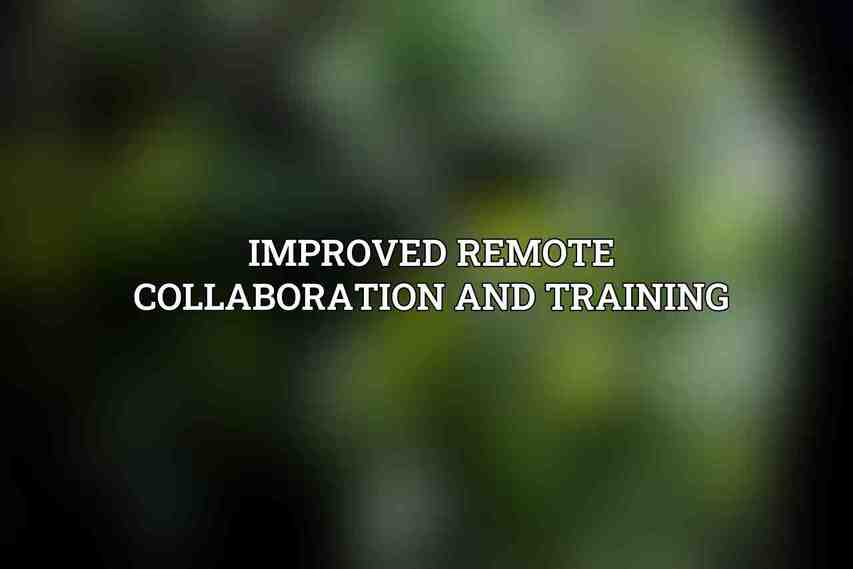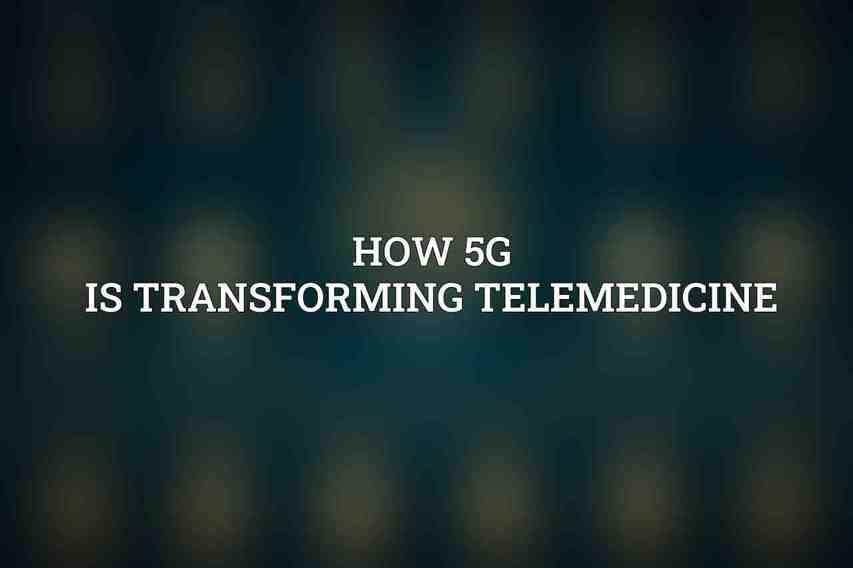Advancements in technology have revolutionized various sectors, including healthcare. 5G, the fifth generation of cellular network technology, offers unparalleled speed, reliability, and connectivity. Telemedicine, the remote diagnosis and treatment of patients through telecommunications technology, has seen a surge in adoption, especially with the global pandemic highlighting the need for virtual healthcare solutions. The synergy between 5G and telemedicine is reshaping the world of healthcare delivery by overcoming barriers of distance and enhancing real-time interactions between healthcare providers and patients.
Read more on The Role of 5G in Advancing Smart Wearables
Benefits of 5G in Telemedicine
The integration of 5G in telemedicine brings forth a myriad of advantages that significantly elevate the quality of healthcare services:
Enhanced Video Conferencing and Teleconsultations
With 5G‘s high-speed and low latency capabilities, healthcare professionals can conduct seamless video consultations with patients in high definition, fostering a more interactive and engaging virtual healthcare experience.
Remote Patient Monitoring and Diagnosis
5G enables real-time transmission of medical data from wearable devices and sensors, empowering healthcare providers to remotely monitor patients’ vital signs, chronic conditions, and overall health status with precision and timeliness.
Improved Remote Collaboration and Training

Healthcare teams can now engage in virtual multidisciplinary discussions, share medical imaging, and participate in training sessions using 5G networks, breaking down geographical barriers and promoting knowledge exchange.
Access to Rural and Underserved Areas
By bridging the digital divide, 5G extends the reach of telemedicine to remote and underserved regions, where access to quality healthcare services may be limited, thereby ensuring equitable healthcare for all.
Dive deeper into The Impact of 5G Networks on Modern Hospitals
5G-Enabled Telemedicine Devices
The seamless integration of 5G technology with telemedicine is exemplified through innovative devices that cater to the demands of modern healthcare delivery:
OnePlus 12R
The OnePlus 12R boasts impressive features such as a 120Hz AMOLED display, up to 12GB of RAM, and a Snapdragon 8+ Gen 1 processor. These specifications translate to smooth video streaming, a responsive interface, and ample processing power, making it an ideal gadget for telemedicine applications.
Other 5G-Compatible Devices
- Apple iPhone 14 Pro: Known for its cutting-edge technology and user-friendly interface, the iPhone 14 Pro’s 5G compatibility enhances telemedicine experiences with its high-performance features.
- Samsung Galaxy S23 Ultra: Samsung’s flagship device offers top-tier specifications and 5G connectivity, enabling healthcare professionals to deliver seamless telehealth services.
- Google Pixel 7 Pro: Google’s Pixel 7 Pro combines innovative software with 5G capabilities, providing a platform for efficient telemedicine consultations and treatments.
Stay tuned for more…
Frequently Asked Questions
What is 5G technology?
5G is the fifth generation of wireless technology and promises significantly faster data speeds, lower latency, and increased capacity compared to previous generations.
Explore further with Best 5G-Enabled Medical Devices of 2024
How is 5G impacting telemedicine?
5G is enabling real-time, high-quality video consultations between patients and healthcare providers, improving remote monitoring of patients, and enhancing the overall healthcare delivery system.
Is 5G available everywhere for telemedicine services?
While 5G networks are rapidly expanding, they may not be available in all areas. However, where available, 5G can greatly enhance the quality of telemedicine services.
What are some specific benefits of 5G in telemedicine?
Some benefits of 5G in telemedicine include improved connectivity in remote areas, high-definition video streaming for consultations, and increased reliability for real-time monitoring devices.
Are there any security concerns with using 5G for telemedicine?
As with any technology, there are security concerns with using 5G for telemedicine. It’s crucial for healthcare organizations to implement strong data encryption, authentication protocols, and other cybersecurity measures to protect patient information.

